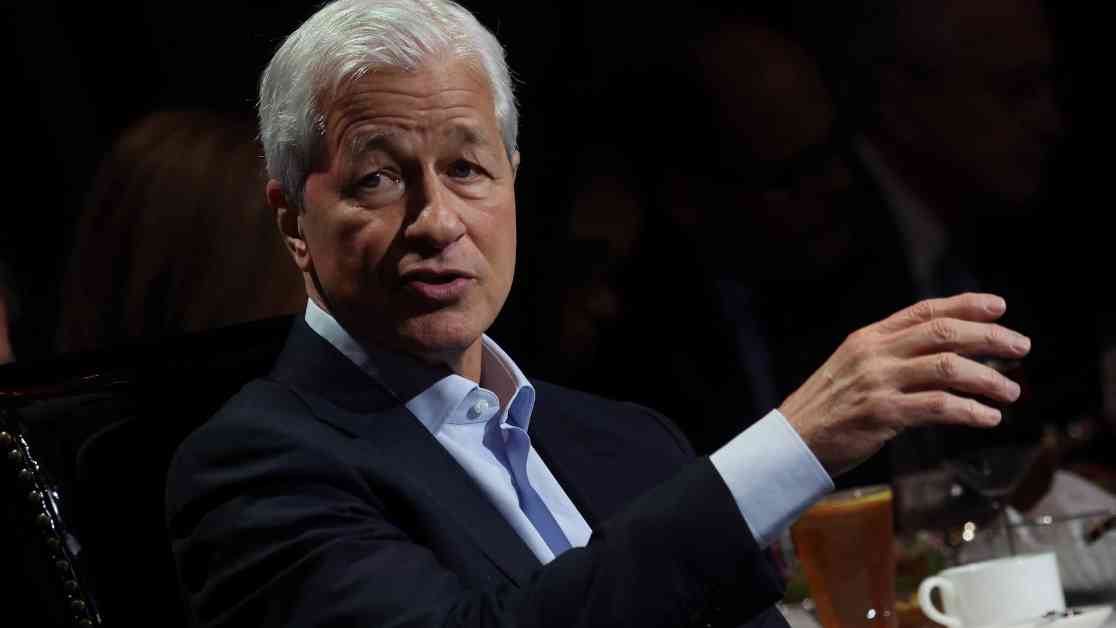Geopolitics Worsening, JPMorgan CEO Jamie Dimon Warns
In a recent speech to the Economic Club of New York, JPMorgan Chase & Co. Chairman and CEO Jamie Dimon once again raised concerns about the state of global stability. Dimon, who had previously identified geopolitics as the world’s biggest risk, reiterated his warning that the situation has only worsened over the past year.
During an exclusive interview with CNBC-TV18 while visiting India, Dimon emphasized the growing risks associated with geopolitical instability. He pointed to the potential for accidents in energy supply chains and the involvement of other countries in conflicts around the world. Dimon specifically highlighted recent attacks carried out by Yemen’s Houthi rebel group in the Red Sea, including assaults on crude oil tankers.
The U.S. military has confirmed at least two such attacks by the Houthis this month, underscoring the real-world impact of geopolitical tensions on global trade and energy markets. Dimon stressed that these incidents are indicative of a larger trend of escalating conflicts and instability on the international stage.
“For me, geopolitics is the biggest caution,” Dimon stated during the interview. He also expressed concerns about the possibility of a prolonged conflict between Ukraine and Russia, urging the U.S. to be prepared for potential repercussions on the global economy.
Dimon’s remarks come at a time when the world is grappling with a host of geopolitical challenges, from territorial disputes to trade tensions and military conflicts. The interconnected nature of the global economy means that disruptions in one region can have far-reaching consequences for markets and businesses worldwide.
As the head of one of the largest financial institutions in the world, Dimon’s insights carry significant weight in the business and investment communities. His warnings about the impact of geopolitics on the economy serve as a reminder of the importance of understanding and managing geopolitical risks in an increasingly interconnected world.
The Impact of Geopolitical Instability
The link between geopolitics and economic stability is well-established, with conflicts and tensions in various parts of the world having the potential to disrupt financial markets, supply chains, and investment flows. Geopolitical instability can lead to increased volatility in commodity prices, currency exchange rates, and stock markets, creating uncertainty for businesses and investors.
Recent events, such as the ongoing conflict in Ukraine, tensions in the South China Sea, and the rise of populist movements in Europe and the United States, have added to the sense of unease in global markets. The actions of rogue states, terrorist groups, and cyber attackers further complicate the geopolitical landscape, posing new challenges for policymakers and business leaders alike.
The impact of geopolitical instability is not limited to specific regions or industries but can have ripple effects that reverberate across the global economy. Disruptions in energy supplies, disruptions in trade routes, and disruptions in financial flows can all have cascading effects on businesses, consumers, and governments around the world.
Navigating Geopolitical Risks
In light of the growing concerns raised by Jamie Dimon and other experts, businesses and investors are increasingly focused on understanding and mitigating geopolitical risks. This entails assessing the potential impact of political events, conflicts, and policy changes on their operations and investments, as well as developing strategies to manage and respond to these risks.
One approach to navigating geopolitical risks is to diversify operations and investments across different regions and markets, reducing exposure to any single point of failure. Companies can also proactively monitor geopolitical developments, engage with local stakeholders, and build resilient supply chains that can withstand disruptions.
In addition, businesses can leverage technology and data analytics to enhance their risk assessment capabilities and identify early warning signs of potential geopolitical threats. By staying informed, agile, and adaptable, companies can better position themselves to navigate the complex and unpredictable geopolitical landscape.
The Future of Geopolitics and the Economy
As geopolitical tensions continue to simmer and new challenges emerge on the global stage, the relationship between geopolitics and the economy will remain a key concern for policymakers, businesses, and investors. The impact of geopolitical events on financial markets, trade flows, and economic growth will continue to shape the trajectory of the global economy in the years to come.
In this uncertain environment, the insights and warnings provided by leaders like Jamie Dimon are invaluable for understanding the risks and opportunities presented by geopolitics. By staying vigilant, proactive, and adaptable, businesses and investors can navigate the geopolitical landscape with greater confidence and resilience, positioning themselves for success in an increasingly interconnected world.
















